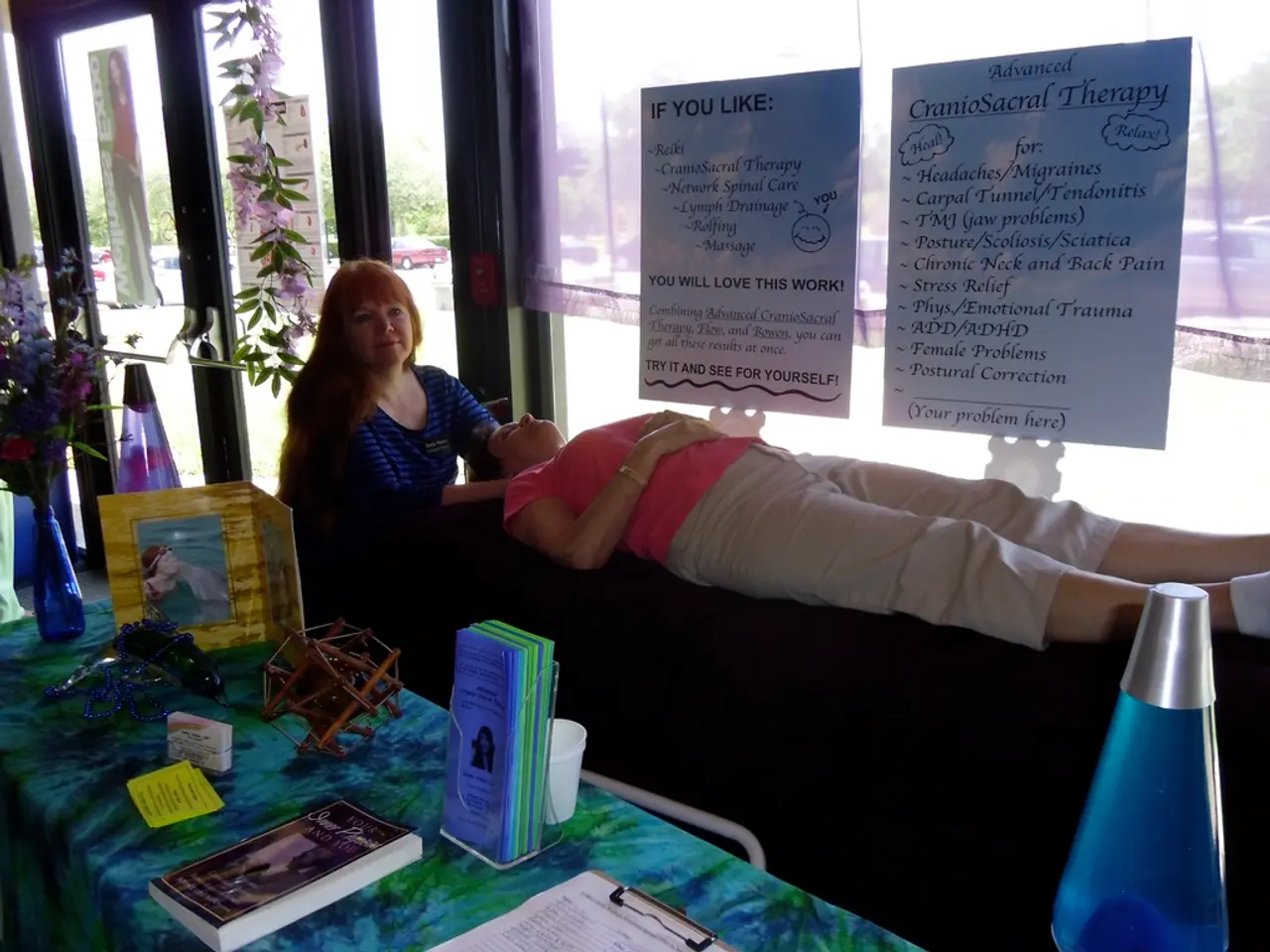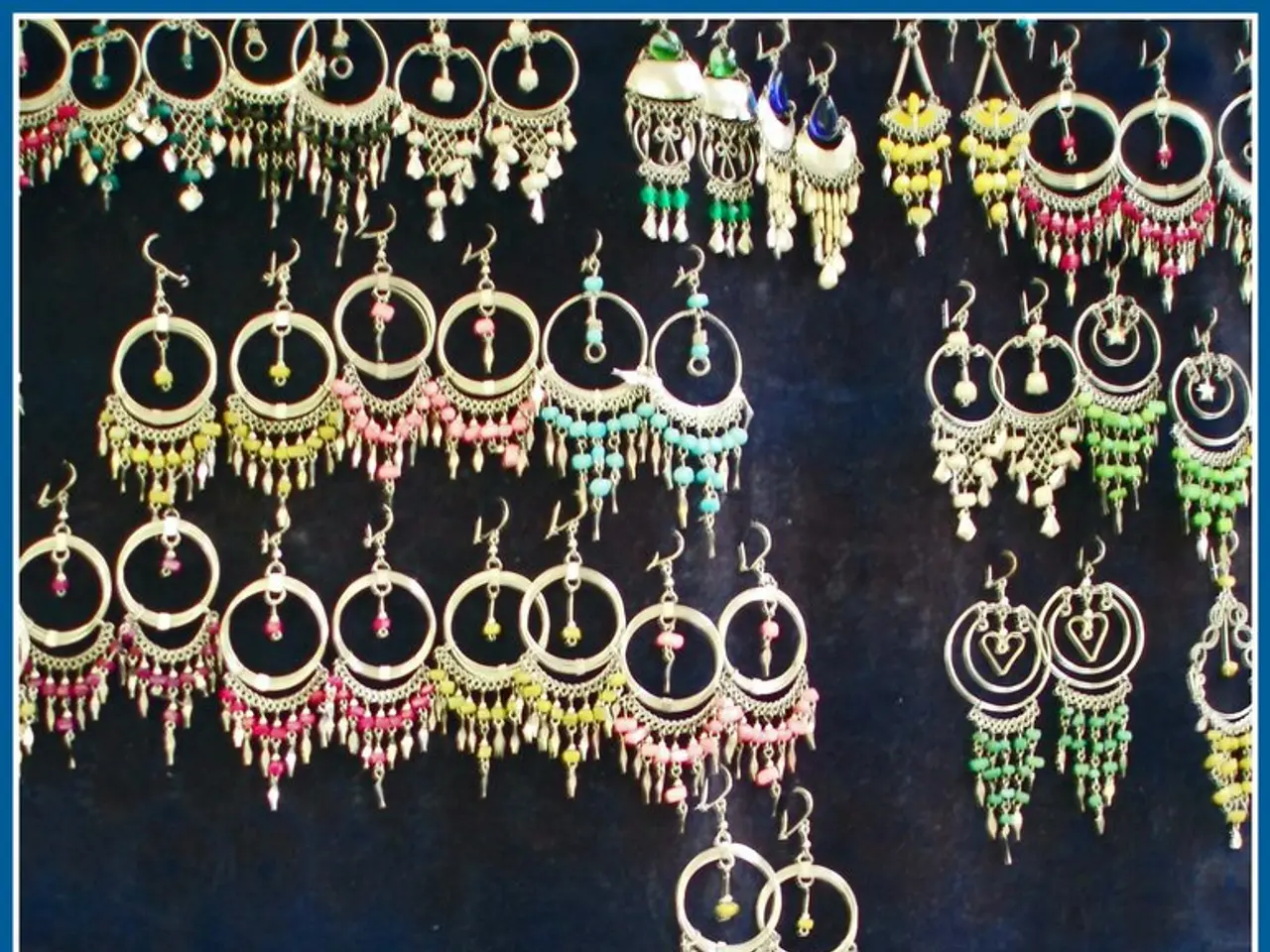Selecting the Optimal Mental Health App That Suits Your Needs
Mental health apps have emerged as a potential solution for individuals seeking assistance in managing anxiety and depression. While their effectiveness varies, research shows mixed but promising results, with some apps demonstrating significant reductions in symptoms of these conditions.
A University of Michigan study involving over 2,000 participants found that apps incorporating mindfulness, cognitive behavioral therapy (CBT), and mood-enhancing prompts were effective in reducing symptoms of anxiety and depression [1][3]. However, another review found no "convincing evidence" that mobile apps alone significantly impact mental health outcomes, suggesting that results may vary widely depending on the app and user [1].
Clinical trials of apps like the one developed by Pathfinder Healthcare and Thrive Mental Wellbeing have shown benefits in relapse prevention and reduced hospital readmissions, indicating their potential as valuable tools [5]. The key to finding an effective app lies in its design, evidence-based techniques, and how well it fits the user's individual needs.
When selecting a mental health app, it's crucial to consider factors such as evidence-based techniques, features and functionality, user reviews and ratings, cost and subscription model, privacy and anonymity, user engagement, integration with professional care, and more [1][2].
To maximise the benefits of mental health apps, users should set realistic goals, use the apps consistently, monitor their progress, and seek professional help if symptoms persist or worsen despite app use [2]. It's important to remember that mental health apps should not be considered a cure-all for anxiety or depression that affects quality of life, and professional help should always be sought in such cases.
Dr. Pozuelo explains that some mental health apps offer coaching techniques via text, therapy modules, and live interactions with therapists and psychiatrists. These apps can be used in conjunction with talk therapy, self-care, and other wellness practices. However, in scenarios where high anxiety levels and depression are affecting quality of life, mental health apps cannot substitute seeing a doctor.
Mental health apps offer a convenient and easy way to deliver guidance and support, providing a safe space for those who may be uncomfortable seeking help in a conventional setting. With their rapid increase in availability, mental health apps are considered promising for personal wellness journeys, although more research is needed to fully understand their benefits.
The American Psychiatric Association has an app rating system to help mental health professionals assess the effectiveness and risks of mental health apps. If you have a diagnosed mental health condition, discussing the use of a mental health app with your doctor can enhance your treatment. Despite their limitations, mental health apps serve as a helpful addition for practice, support, and education between clinical appointments.
In conclusion, mental health apps can be a valuable complementary tool for managing anxiety and depression, especially when selected thoughtfully and used alongside other forms of care. Their success depends on evidence-based content, user fit, and consistent engagement.
- The American Psychiatric Association's app rating system can help individuals with diagnosed mental health conditions and their doctors assess the effectiveness and risks of mental health apps, making them a helpful addition for practice, support, and education between clinical appointments.
- Mental health apps, offering coaching techniques and therapy modules, can serve as a convenient and safe space for individuals who may be uncomfortable seeking help in a conventional setting, providing guidance and support on health-and-wellness, mental-health, and mindfulness.
- Users seeking benefits from mental health apps should consider evidence-based techniques, features, functionality, user reviews and ratings, cost and subscription model, privacy and anonymity, user engagement, integration with professional care, and more, setting realistic goals, using the apps consistently, monitoring their progress, and seeking professional help if symptoms persist or worsen despite app use.




